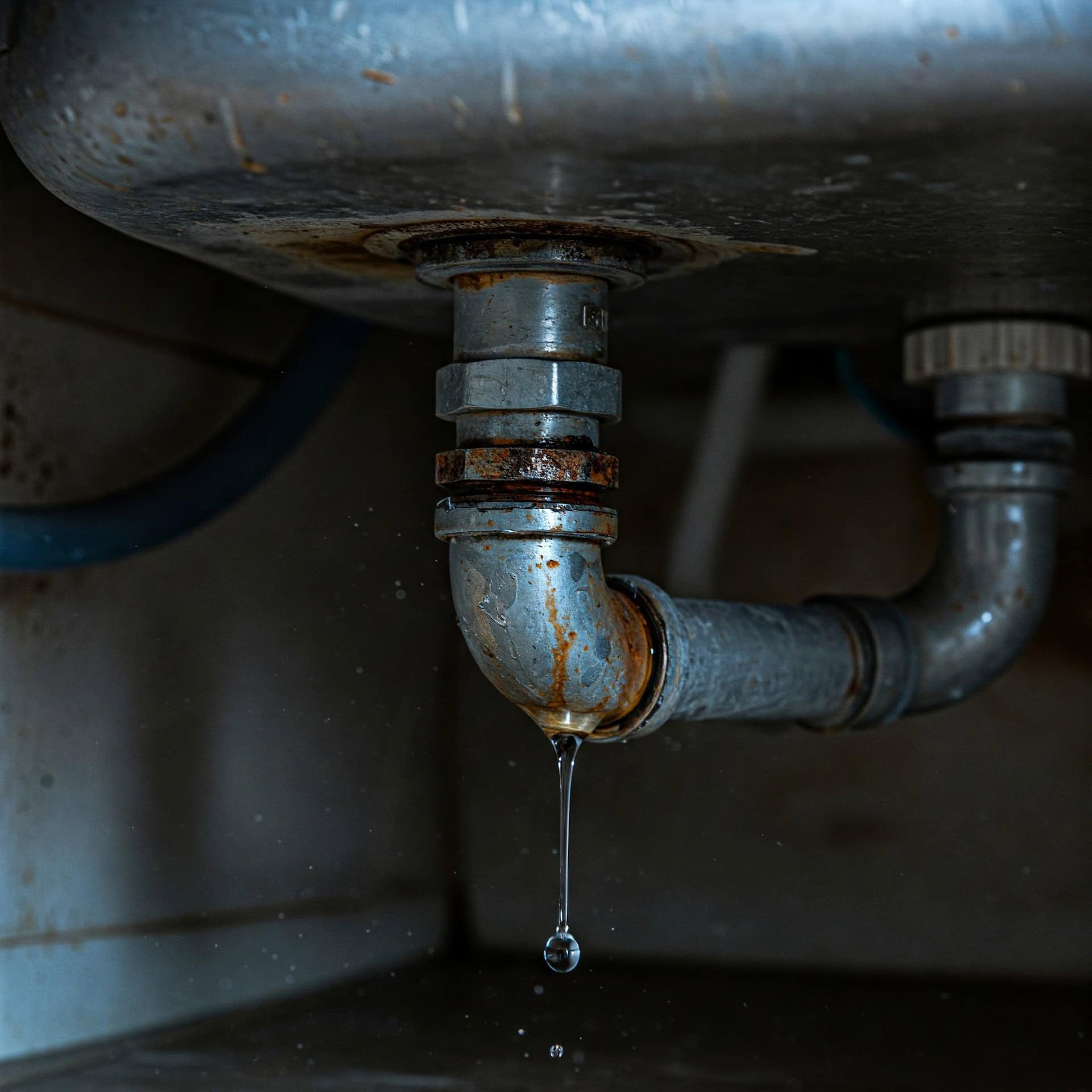
Question: Why is My Kitchen Sink Leaking Underneath?
Answer: Your kitchen sink is likely leaking due to a faulty pipe connection, worn-out sealant around the drain, or a damaged garbage disposal. Inspect these areas for visible issues.
Common Kitchen Sink Leaks
A leaking kitchen sink disrupts daily routines and causes water damage. This article explains common leak sources under your kitchen sink and offers solutions.
Finding the Leak
Several reasons exist for under-sink leaks. Pinpointing the source requires careful inspection. Common culprits include faulty pipe connections, worn-out seals, or a damaged garbage disposal.
Pipe Connections
Loose nuts or corroded pipes at the tailpiece, P-trap, or water supply lines cause leaks. Inspect these connections for visible drips or moisture.Worn Seals
Rubber seals around the drain flange or basket strainer deteriorate over time. A compromised seal allows water to escape. Check for cracks or gaps in the seals.Garbage Disposal Issues
Leaky garbage disposals often stem from a faulty reset button, loose connections, or a cracked housing. Examine the disposal for signs of damage or leaks.
Click here for more information on kitchen cabinet refacing near me Toronto
Related Article: Are Kitchen Faucet Holes Universal?
Related Article: Should I Silicone Around My Kitchen Sink?
Simple DIY Fixes
You can fix some under-sink leaks yourself. Tightening loose nuts on pipe connections often solves the problem. Replace worn-out seals readily available at hardware stores. For garbage disposal leaks, check the reset button and tighten connections. Refer to your garbage disposal’s manual for specific troubleshooting instructions.
Tightening Connections
Use pliers or a wrench to carefully tighten loose nuts. Avoid over-tightening, which could damage the pipes.Replacing Seals
Remove the old seal and clean the surface before installing the new one. Ensure a snug fit for the new seal.Garbage Disposal Reset
Press the reset button located on the bottom of the disposal unit. Check for clogs and remove them if necessary.
When to Call a Plumber
Some leaks require professional help. Call a licensed plumber if you have persistent leaks, extensive corrosion, or if you are uncomfortable working with plumbing. A plumber possesses the expertise and tools to diagnose and repair complex plumbing issues effectively, ensuring a lasting solution.
Persistent Leaks
If the leak continues after attempting DIY fixes, it indicates a more serious problem requiring professional attention.Extensive Corrosion
Severely corroded pipes need replacement, a job best handled by a qualified plumber.Lack of Confidence
If you are not comfortable with plumbing repairs, it is always best to call a professional to avoid causing further damage.
Preventing Future Leaks
Regular maintenance prevents future under-sink leaks. Inspect pipes and connections periodically and replace worn-out seals promptly. Avoid pouring grease or fibrous materials down the drain to prevent clogs. Run cold water while using the garbage disposal to flush debris effectively. By taking these preventive measures, you can minimize the risk of future leaks and maintain a functional kitchen sink.
Regular Inspections
Periodically check for loose connections, signs of corrosion, and worn seals.Proper Garbage Disposal Use
Avoid putting hard or fibrous materials down the drain. Run cold water while operating the disposal.Prompt Repairs
Address minor leaks immediately to prevent them from becoming major problems.
Conclusion
Addressing a leaking kitchen sink promptly prevents water damage and maintains a functional kitchen. By understanding the common causes, implementing basic troubleshooting steps, and knowing when to call a plumber, you can effectively manage and resolve under-sink leaks. Regular maintenance further reduces the likelihood of future issues. [ 1 ]
References
1. https://legacyplumbing.net/blog/how-to-find-a-leak-under-the-kitchen-sink/

Blue Malue Get in touch with Blue here.
